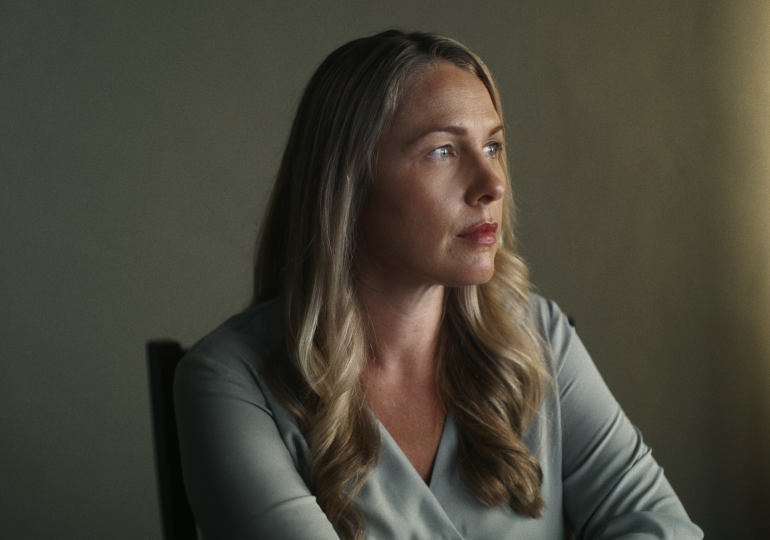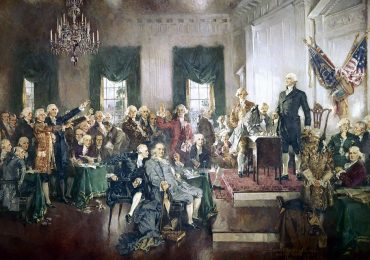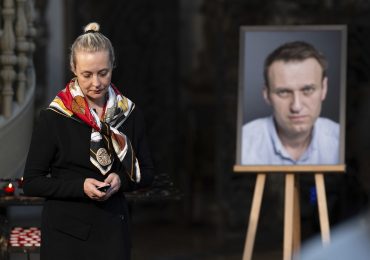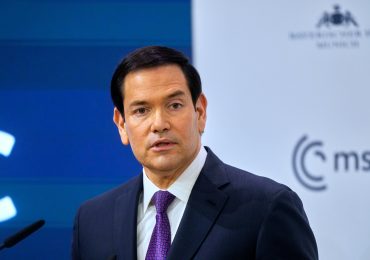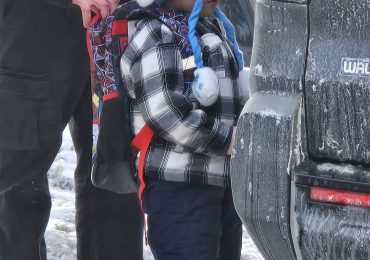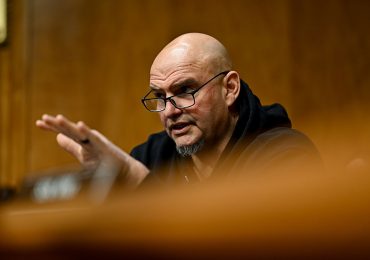Warning: This post contains spoilers for American Nightmare.
Denise Huskins says that when she was released on March 25, 2015, by one of the men who had kidnapped her two days earlier, the last thing she was thinking about was ensuring everything she had been through sounded believable. But almost immediately after reaching safety, Huskins, then 29, started to realize that she had returned not only to a media firestorm, but to a brigade of law enforcement officials intent on proving she had pulled a real-life Gone Girl.
[time-brightcove not-tgx=”true”]
In American Nightmare, now streaming on Netflix, Huskins and her now-husband Aaron Quinn recount how their lives spiraled out of control after Huskins was taken from Quinn’s Vallejo, Calif., home in the early morning hours of March 23, 2015. Over the next 48 hours, police went from trying to pin Huskins’ disappearance on her then-boyfriend Quinn to framing Huskins herself as the perpetrator of a scheme similar to the faked abduction at the center of David Fincher’s 2014 thriller Gone Girl, which was based on Gillian Flynn’s best-selling 2012 novel of the same name.
The three-part docuseries, from The Tinder Swindler filmmakers Felicity Morris and Bernadette Higgins, combines interviews, interrogation footage, and audio recordings to chronicle how Huskins and Quinn’s story became a harrowing example of what can happen when the justice system fails the victims of a crime.
What happened to Denise Huskins?
The first two episodes of American Nightmare are narrated by Quinn and Huskins, respectively, with each relaying how the night of Huskins’ kidnapping and the days that followed played out from their perspectives.
Both parties recall being awoken in the night to a blinding light and the voice of a man alerting them to the presence of at least one intruder in Quinn’s home.
“I remember being asleep and hearing a voice and thinking it was a dream,” Huskins told ABC News. “But the voice kept talking and I just remember my eyes shot open and I could see the walls illuminated with a white light that was flashing and I could see a couple of red laser dots crossing the wall, and I could hear, ‘Wake up, this is a robbery. We’re not here to hurt you.’ And in that moment, I just thought, ‘Oh my God. This is not a dream.’”
The couple was bound, blindfolded, and sedated, and Huskins was taken from the home in the trunk of Quinn’s car while Quinn was left inside and told to wait for further instruction on how to deliver a ransom. He was also warned that there was a camera monitoring his movements and if he contacted the police, the kidnappers would kill Huskins.
In “Part One: The Boyfriend,” Quinn breaks down how he came to be considered a suspect in the case, explaining how police didn’t believe his explanation of Denise’s disappearance. Footage from the time Quinn spent talking with Vallejo Detective Mathew Mustard shows Mustard telling Quinn that he doesn’t buy his story and suggesting that Quinn killed Huskins in a domestic violence dispute and disposed of her body. After 18 hours of police interrogation, Quinn’s brother Ethan hired an attorney, Dan Russo, to secure his release from police custody and represent him moving forward.
During the time Quinn was detained, as he had told police would happen, the kidnappers tried to contact him both by email and phone about the ransom. But police had put his phone on airplane mode.
Meanwhile, as she recounts in “Part Two: Gone Girl,” Huskins was being kept in a remote location by her kidnappers. The one man she interacted with told her that he was ex-military and part of a criminal group that included three other members. He also said that the intended targeting of the kidnapping was actually Quinn’s ex-fiancée, Andrea Roberts, who had lived at Quinn’s home until the previous September and looked somewhat similar to Huskins. Over the next 48 hours, Huskins was raped twice by her captor while he videotaped the assaults.
She was eventually released 400 miles away from Vallejo, near the Huntington Beach neighborhood where she grew up—without any ransom being paid. She then made her way to her father’s home, where she was let inside a neighbor’s house after discovering her dad wasn’t home. The same day she was freed, Vallejo Police announced that her abduction appeared to be an “orchestrated event and not a kidnapping,” and Huskins was forced to hire her own lawyer, defense attorney Doug Rappaport.
“Mr. Quinn and Ms. Huskins have plundered valuable resources away from our community and taken the focus away from the true victims of our community while instilling fear among our community members,” Vallejo police spokesperson Lt. Kenny Park said during a press conference. “So, if anything, it is Mr. Quinn and Ms. Huskins that owe this community an apology.”
Apparently feeling guilty over how Huskins was being treated by law enforcement and in the press, the kidnappers emailed multiple statements to the San Francisco Chronicle stating that the couple was telling the truth. The emails included photos that corroborated details of Huskins’ story
“We cannot stand to see two good people thrown under the bus by the police and media, when Ms. Victim F (Huskins) and Mr. Victim M (Quinn) should have received only support and sympathy,” one email read. “We are responsible for the victims’ suffering and the least we can do is come forward to prove they are not lying.”
How was the case solved?
After months of being subjected to false accusations that one or both of them had faked Huskins’ abduction and sexual assault—as well as living in fear that one or more assailants were still out there—an attempted kidnapping in Dublin, Calif., around 40 miles south of Vallejo, made for a break in the case. The June 5, 2015, incident bore striking resemblances to Huskins and Quinn’s story, except this time the threatened couple had managed to thwart the intruder, who dropped his phone inside their house in the scuffle.
Dublin police traced the phone to a woman who told them that it belonged to her son, Matthew Muller, a former U.S. Marine and Harvard law school graduate. After searching Muller’s South Lake Tahoe cabin, Misty Carausu, one of the officers who took part in the arrest, started putting the pieces of the puzzle together.
“Looking back at all the evidence, there was just no denying that this wasn’t his first time committing a crime,” Carausu told ABC News. “I just had to figure out where these other crimes occurred.”
Muller, who had previously committed similar home invasions and assaults around the Bay Area, was ultimately charged in Sacramento federal court with kidnapping for ransom. While he never revealed why Roberts was his intended target, he pled guilty and was sentenced to 40 years in prison. He was later charged in Solano County with the sexual assault of Huskins, as well as robbery, burglary, and the false imprisonment of Quinn, and sentenced to 31 years in state prison. He is serving his state sentence concurrently with the federal sentence.
While Huskins and Quinn maintain there was more than one suspect involved, no one but Muller has ever been charged in the case.
Where are Denise and Aaron today?
In March 2016, Huskins and Quinn filed a defamation lawsuit against the City of Vallejo and its police department in which they accused Vallejo officers of “a vicious and shocking attack” that “unfairly destroyed their reputations through an outrageous and wholly unfounded campaign of disparagement.”
They settled out of court for $2.5 million, but continued to advocate against the department’s actions. In a 2021 op-ed for Open Vallejo, Quinn argued that Vallejo Police should be disbanded for its officers’ misconduct.
“Six years ago, my wife Denise Huskins and I were subjected to the department’s malice after she was kidnapped from my home,” he wrote. “Without evidence, Detective Mat Mustard and others falsely accused me of murder while ignoring leads that would have led them to Denise. When she was released alive, we were immediately accused of fabricating her kidnapping and sexual assaults.”
In a 2021 statement, Vallejo Police Chief Shawny Williams, who was appointed chief in 2019 before resigning in 2022, said that what happened to Huskins and Quinn was “horrific and evil.”
“I am committed to making sure survivors are given compassionate service with dignity and respect,” the statement read. “Although I was not chief in 2015 when this incident occurred, I would like to extend my deepest apology to Ms. Huskins and Mr. Quinn for how they were treated during this ordeal.”
On a personal level, the couple has said that the traumatic saga ultimately brought them closer together. They married in 2018 and welcomed their first daughter, Olivia, five years to the day after Huskins was released. Their second daughter, Naomi, was born in 2022.
“You can go through any kind of trauma to where it leaves you devastated and in a place where you just think, ‘This is impossible to move forward from. What do I do next?’” Huskins told ABC News of working through the emotional distress she and Quinn suffered. “I think ours is an example of that. There is hope. It might take time and it might be a lot of hard work, but there is hope.”
Leave a comment
